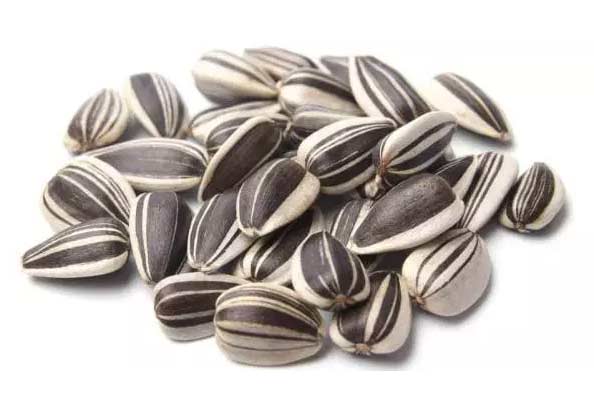Sunflower seeds are the gift of the beautiful sunflower, a plant with rays of petals emanating from its bright yellow, seed-studded center. The sunflower’s Latin scientific name, Helianthus annuus, reflects its solar appearance since helios is the Greek word for sun, and anthos is the Greek word for flower.
The sunflower produces grayish-green or black seeds encased in tear-dropped shaped gray or black shells that oftentimes feature black and white stripes. Since these seeds have a very high oil content, they are one of the main sources used to produce polyunsaturated oil. Shelled sunflower seeds have a mild nutty taste and firm, but tender texture.
Sunflower seeds are an excellent source of vitamin E, the body’s primary fat-soluble antioxidant. Vitamin E travels throughout the body neutralizing free radicals that would otherwise damage fat-containing structures and molecules, such as cell membranes, brain cells, and cholesterol. By protecting these cellular and molecular components, vitamin E has significant anti-inflammatory effects that result in the reduction of symptoms in asthma, osteoarthritis, and rheumatoid arthritis, conditions where free radicals and inflammation play a big role. Vitamin E has also been shown to reduce the risk of colon cancer, help decrease the severity and frequency of hot flashes in women going through menopause, and help reduce the development of diabetic complications.In addition, vitamin E plays an important role in the prevention of cardiovascular disease. Vitamin E is one of the main antioxidants found in cholesterol particles and helps prevent free radicals from oxidizing cholesterol. Only after it has been oxidized is cholesterol able to adhere to blood vessel walls and initiate the process of atherosclerosis, which can lead to blocked arteries, heart attack, or stroke. Getting plenty of vitamin E can significantly reduce the risk of developing atherosclerosis. In fact, studies show that people who get a good amount of vitamin E are at a much lower risk of dying of a heart attack than people whose dietary intake of vitamin E is marginal or inadequate.
Sunflower seeds are sold either shelled or unshelled and are generally available in prepackaged containers as well as bulk bins. Just as with any other food that you may purchase in the bulk section, make sure that the bins containing the sunflower seeds are covered and that the store has a good product turnover so as to ensure the seeds’ maximal freshness.
When purchasing unshelled seeds, make sure that the shells are not broken or dirty. Additionally, they should be firm and not have a limp texture. When purchasing shelled seeds, avoid those that appear yellowish in color as they have probably gone rancid. In addition, if you are purchasing sunflower seeds from a bulk bin, smell them to ensure that they are still fresh and have not spoiled.
Since sunflower seeds have a high fat content and are prone to rancidity, it is best to store them in an airtight container in the refrigerator. They can also be stored in the freezer since the cold temperature will not greatly affect their texture or flavor.

